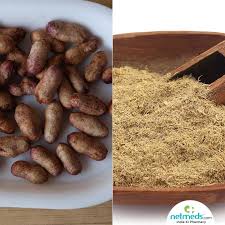
How to Start a Herbal Business Selling Jadi Buti & Ayurvedic Products
Starting a herbal business selling Jadi Buti (medicinal herbs) and Ayurvedic products can be a highly profitable and sustainable venture. With the growing demand for organic, natural remedies, people are shifting towards Ayurveda for health, skincare, and wellness. If you are passionate about herbs and want to start your own herbal business, this guide will help you understand the steps, strategies, and essential factors needed to succeed in the industry.
Long Description
Step 1: Understanding the Herbal & Ayurvedic Industry
🌿 The global Ayurvedic products market is booming, driven by health-conscious consumers seeking natural remedies.
🌱 Jadi Buti & Ayurvedic products have applications in medicines, skincare, haircare, and immunity-boosting supplements.
💡 Knowing the popular herbs such as Ashwagandha, Bapchi seeds, Giloy, Tulsi, Amla, and Shatavari will help you identify high-demand products.
Step 2: Research & Business Planning
📊 Conduct market research to identify your target audience – Ayurveda practitioners, herbal supplement users, or organic product buyers.
💰 Decide whether you want to start a physical store, online business, or both.
📃 Draft a business plan covering product sourcing, marketing, pricing strategy, and operational costs.
Step 3: Legal Requirements & Certifications
📝 Register your business under MSME (if in India), LLC, or sole proprietorship depending on your country.
✔️ Get licenses & certifications like FSSAI (for herbal supplements), GMP (Good Manufacturing Practices), and Organic Certifications.
⚖️ Ensure compliance with government regulations related to Ayurvedic product sales.
Step 4: Sourcing Quality Jadi Buti & Ayurvedic Products
🏡 You can either cultivate herbs or source from trusted organic farms & suppliers.
🔍 Partner with certified organic farmers to ensure chemical-free, pesticide-free, and pure herbs.
💼 Consider bulk purchasing to reduce costs and maintain inventory.
Step 5: Branding & Product Packaging
🎨 Design an eye-catching brand logo, labels, and eco-friendly packaging to attract health-conscious customers.
📦 Ensure that product labels include ingredients, benefits, expiry dates, and certifications.
🌍 Promote sustainable and eco-friendly packaging to appeal to environmentally conscious buyers.
Step 6: Building an Online Presence
💻 Create a website like Dirghaanshi to showcase your products with detailed descriptions and images.
🛒 Set up an e-commerce store using platforms like Shopify, WooCommerce, or Amazon Seller.
📱 Leverage social media marketing on Instagram, Facebook, and YouTube to educate customers about herbal remedies.
Step 7: Marketing Strategies to Grow Your Business
📌 SEO Optimization – Use keywords like Buy Jadi Buti Online, Ayurvedic Herbs, Organic Herbal Products to rank higher in searches.
📩 Email Marketing – Send offers and Ayurvedic health tips to potential customers.
📢 Influencer & Affiliate Marketing – Collaborate with Ayurvedic experts, herbal bloggers, and influencers for product promotions.
🎥 YouTube & Reels Marketing – Share informative videos on the benefits of Jadi Buti and Ayurvedic products.
Step 8: Customer Trust & Growth Strategies
✔️ Provide lab-tested, certified organic herbs to build credibility.
⭐ Offer a money-back guarantee or free trials to encourage customer trust.
🚀 Expand by introducing herbal skincare, haircare, and immunity-boosting supplements in your product line.
Conclusion
Starting a herbal business selling Jadi Buti & Ayurvedic products can be a highly rewarding venture if done right. By focusing on quality, certifications, branding, and digital marketing, you can establish a successful online herbal store like Dirghaanshi. Invest in sustainable sourcing, SEO, and customer engagement to build a trusted herbal brand in the booming Ayurvedic market.













